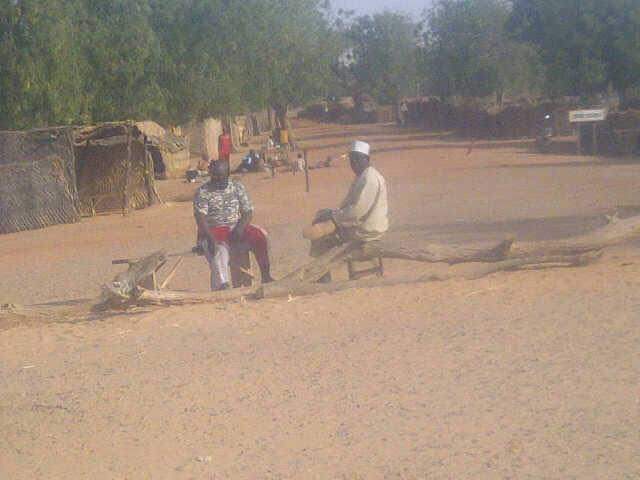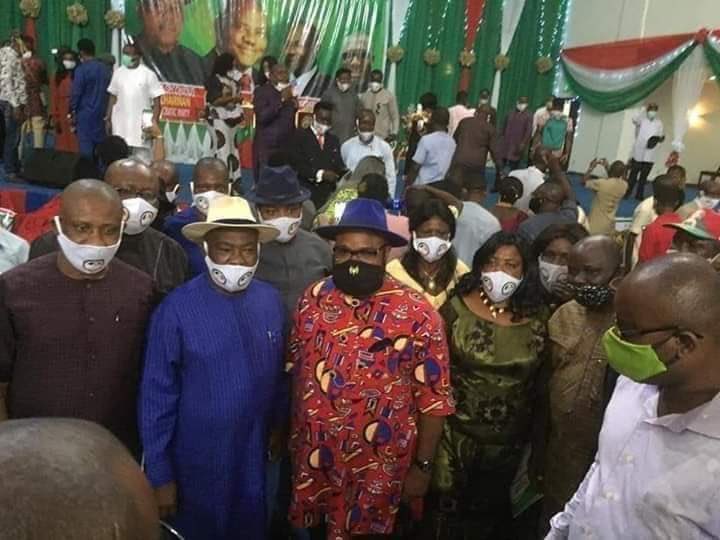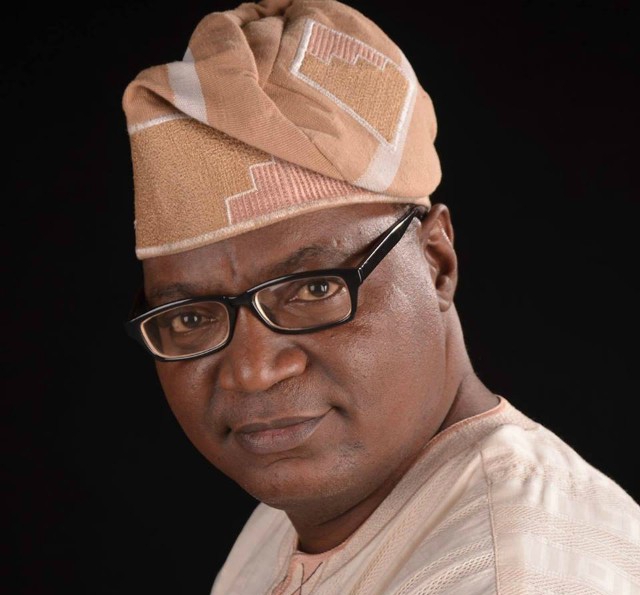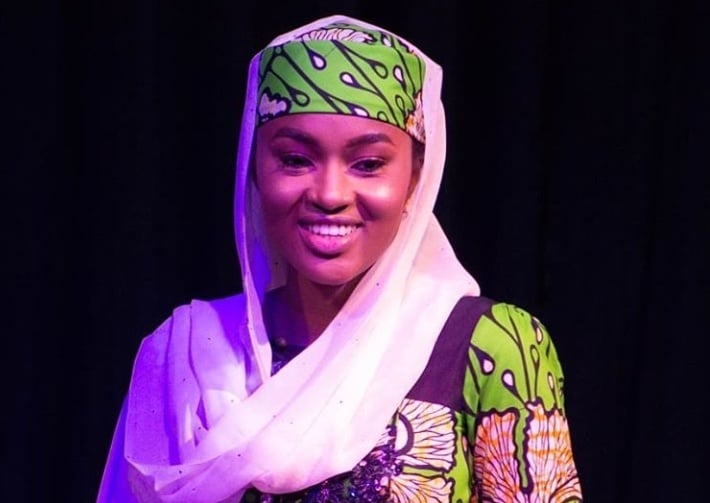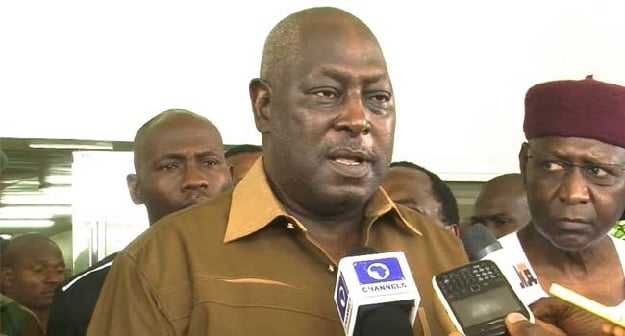BY TUNDE OMOLEHIN
Since the index case of COVID-19 was announced in Sokoto state on April 20, 2020, the seat of the caliphate has continued to record increase in the number of confirmed cases, and within the space of three weeks, the state moved from zero to 112 COVID-19 cases.
Like Sokoto, other neighbouring states like Zamfara and Kebbi – all of old Sokoto state – are battling to curtail the soaring number of cases so far recorded within their respective domains. As of May 13, 2020, Kebbi state had recorded 31 cases, after an index case was identified on April 26, 2020 and Zamfara has no fewer than 73 cases.
While Kebbi state’s index case, a 40-year-old man, was said to have arrived from Lagos state, it was still unclear how both Sokoto and Zamfara index cases were infected with the virus, as they are were all confirmed to have no travel history, pointing to the possibility of community transmission. However, the development in the three states have continued to draw public health concerns, prompting respective state governments to declare various inter-state movement directives, as part of measures to limit the spread of the pandemic.
Health experts have expressed fears concerning the steady increase in the numbers of cases in the affected states, and the consequences of significant community transmission if not tackled. They noted that the indiscriminate flouting of safety guidelines and other measures put in place by the affected state governments was not unconnected to the widespread nature of the disease within the three states.
Advertisement
TheCable observed that most measures taken to enforce self-isolation, social distancing and restrict inter-state movement are being resisted by ‘influential’ persons or not implemented in the rural communities.
“It is true that our people, especially in the northern states have continued to disregard all measures that can curtail the outbreak of COVID-19 which is very dangerous. In fact, since the federal government eased the lockdown, people have been flouting other measures taken by the state government. So, you cannot rule out the possibility of widespread infections. We must realise that this pandemic is [driven by] community transmission,” Ali Suleiman, a Zamfara-based public health expert, said.
Muyideen Ibrahim, a public commentator, told TheCable in a chat that he believes new cases will continue to rise simultaneously in states like Sokoto, Kebbi and Zamfara because of their similar peculiarities.
Advertisement
“Don’t forget that the three states were of old Sokoto state. So, their residents still maintain a lot in common. Think of inter-marriage, culture and other common beliefs,” he said.
Others who spoke on the condition of anonymity cited the situation in Zamfara state, noting that to avert a community transmission pandemic, there is need for total compliance or a fresh lockdown order in Sokoto and neighbouring states.
“It takes no medical expert to know that communities in the affected states are vulnerable to the pandemic and other water-borne diseases like cholera and diarrhoea,” a medical worker said.
NEIGHBOURS’ HEADACHE
Advertisement
Despite the creation of Zamfara and Kebbi states out of old Sokoto state, the trio have remained geographically connected. The residents of the affected states have continued to enjoy common bonds, except the variety in politics and governance. But medical experts said such ties among citizens might trigger community transmission in the wake of the COVID-19 pandemic.
Visits to some border communities reveal the danger ahead if proper checks are not put in place, especially for state officials and traders in the state who are in the habit of visiting neighbouring Niger Republic through the porous borders.
Speaking to TheCable, Mohammed Ali Iname, Sokoto commissioner for health and chairman of the state task force on COVID-19, expressed concern over entry points from neighbouring states.
“There is need to increase the number of personnel and other resources at the border communities to check the spread of the virus. They are very important points to watch over to ensure that we safeguard the entry of people, knowing that the number of cases in Nigeria is also rising,” Inname said.
Advertisement
The commissioner also lamented the porous nature of the boundary with Niger Republic which, according to him, poses a challenge against the COVID-19 fight.
“We are definitely going to report back to heads of Nigeria Immigration what we have seen. The porous nature of the border and the multiplicity of entry points need a lot of human resources and men to guard them,” he said.
Advertisement
“You could see that the official entry point of the border is closed, but there are hundreds of routes; some by motorcycles, others by donkeys and so many routes you have seen over. So, I will definitely convey this to the security committee, especially the Nigeria Immigration Service, to see what we can do to improve security.”
FEARS, CONCERNS OVER STRANGE DEATHS
Advertisement
As of May 12, a total of 13 COVID-19 fatalities had been recorded in Sokoto, but there are insinuations of rising number of deaths with the cause still unknown. The development, according to findings, is now causing rumours and panic among residents of neighbouring states of Kebbi and Zamfara.
A claim on social media indicated that a high number of deaths had been witnessed in some local government areas (LGAs) of Sokoto state, with an estimation of over 100 bodies buried in a single cemetery. The development has prompted Aminu Tambuwal, governor of the state, to constitute a committee to investigate the claim in order to unravel its circumstances.
Advertisement
However, investigation obtained by TheCable revealed that only ten deaths as officially announced on May 10 were so far recorded by the state at the time. Other deaths were traced to aged persons and natural causes. The deaths included that of Garba Nadama, elder statesman and a former governor of the state, and Haruna Usman, a serving commissioner at the time.
The committee set up to investigate the deaths reviewed the cemetery records, which showed the trend of deaths.
Speaking on the development, Inname said 10 COVID-19 deaths were recorded.
“On the quick rise in the number of active cases in the state, the committee has streamlined three steps to curtail the spread of the disease namely tracing, testing and treatment,” the commissioner explained.
“Over 200 teams were deployed to LGAs across the state for contact tracing. We carried out a post-mortem test on dead bodies and testing of all contacts. This is why the number of active cases is increasing on a daily basis.”
RURAL DWELLERS, TRAVELLERS STILL FLOUT GOVERNMENT DIRECTIVES
Despite the restriction on movement and lockdown orders placed by both the federal and state governments as part of measures taken against the spread of COVID-19, there has been an influx of people into Sokoto and its neighbouring states through community routes.
A visit to some border communities in Sokoto and Kebbi states, revealed that residents are either unaware of the pandemic or simply preferred to ignore the ban on inter-state travel.
Manur, a member of the state task force said his team has intensified its surveillance to ensure full compliance.
“We intercepted a truck carrying 61 passengers returning from Lagos state, after the state government ordered the closure of inter-state routes earlier this month, but some people are still violating the directives day and day out,” he said.
The entry points include Kuchi, Alasan, Sanyinna, Malisa, Bimasa, Jabo, Gada, Sabo Birni, Illela and Rabba of Sokoto state. Others include Argungu, Aliero and Kamba in Kebbi communities.
However, some security officials who spoke to TheCable on condition of anonymity also accused community leaders in the border communities of not supporting the enforcement of the ban on movement.
‘POROUS BORDERS, INTER-MARRIAGE THREATEN THE FIGHT AGAINST COVID-19’
Efe Megbuwe, the chief environmental health assistant of Port Health, Federal Ministry of Health, has identified issues of marital bond, community conspiracy and porous borders as some of the factors that could work against securing the country from cross-border transmission.
Megbuwe, in an interview with TheCable at Illela border, described the boundary linking Nigeria with Niger Republic as the most porous in the country, with no fewer than 100 routes in a single direction for escaping from security agents.
“Illela border is the most porous route in the country because we have more than 100 routes that are convenient for people to beat security agents. And the two directions to Niger Republic territory have about 50 routes. We are very few compared to the large boundary assigned to cover,” he said.
“Another problem we are facing is the intermarriage bond between Nigerian citizens and Nigeriens. Most than half of Illela residents married from Niger Republic, and you can’t tell a Nigerien woman who married a Nigerian man not to enter Nigeria, or vice versa. This has made the movement along this border to be so porous and complex in nature. They are ready to fight for their rights if you attempt to stop them.
“A Nigerian man may marry from Niger Republic and build two houses; one in Konni, Niger Republic and another one in Illela town, Nigeria and begin to shuttle between the two communities because they are just a stone-throw apart. If you stop him from frequently moving between the two countries in the wake of an outbreak, he will still find a way to meet with his family in both countries. That is the situation for now.”
He, however, lamented lack of personnel to effectively man the designated boundary.
“And as it is now, we have very few personnel to man these routes for effective monitoring of aliens coming into the country. What I can say is that we are short of staff to monitor this border,” he added.
“Presently, we have about 10 staff on ground for this exercise. We are supposed to be on routine patrol across the boundary line to catch up with some elements who are trying to evade our screening exercise, but we lack mobility capacity to do so. No hilux van to operate such important patrol across the border.”
STATES GOVERNMENTS: WE ARE ON TOP OF THE SITUATION
Speaking through Aliyu Bandado, his senior special assistant on new media, Atiku Bagudu, governor of Kebbi, called for calm regarding the confirmation of the index COVID-19 case in the state.
“There is no need to panic. We are capable of handling any case responsibly, without any panic and God’s grace, we will overcome it. The state team, epidemiologists and other public health officials are well trained to cater for any eventuality,” he said.
Also, Muhammad Jafar, the commissioner for health, said part of measures taken to contain the spread of the virus is the creation of medical outpost at the border towns to screen movement of essential services into the state.
On his part, Bello Matawalle, governor of Zamfara state, announced the closure of all markets as well as the suspension of congregational prayers in mosques and churches across the state to curtail the spread of the virus.
The governor re-affirmed the curfew order announced by the federal government with an additional measure taken on Kaura Namoda Local Government Area, where the curfew is now from 6pm to 6am daily. Similarly in Sokoto, a team of COVID-19 response volunteers has been inaugurated to step up measures aimed at reducing the spread in the state.
The Sokoto health commissioner told TheCable that the state has commenced the distribution of two million face masks to the residents across the 23 local government areas of the state. He noted that wearing of face masks is necessary where there is no total lockdown in order to contain the spread of the coronavirus.
“In light of this new evidence, CDC recommends wearing cloth or face coverings in public settings where other social distancing measures are difficult to maintain, for example, markets, grocery stores and pharmacies, especially in areas of significant community-based transmission,” he explained.
Add a comment
